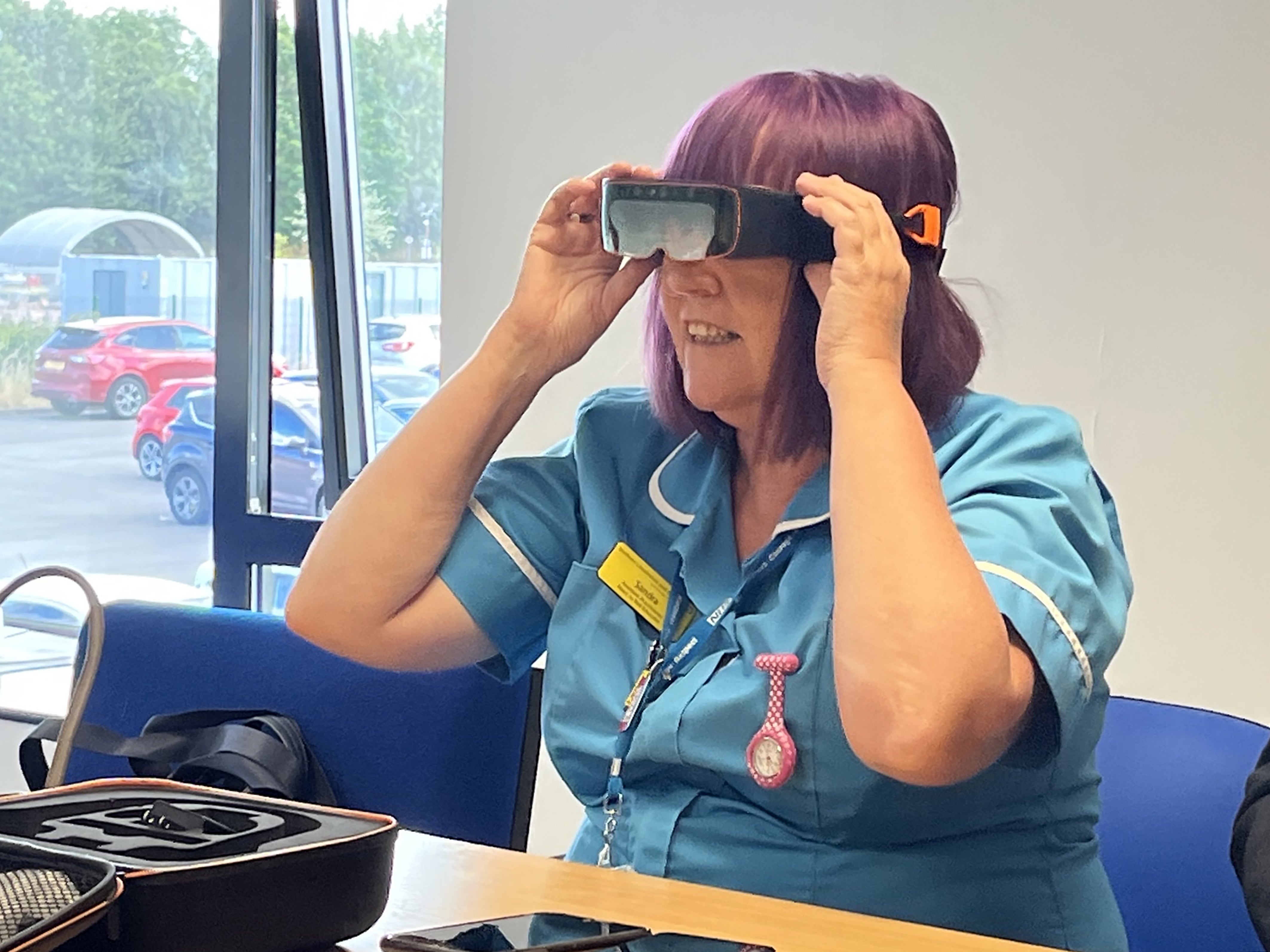New smart glasses to help nurses maximise time with patients on home visits
The virtual reality-style goggles will transcribe appointments directly to electronic records in a bid to reduce time-consuming administration tasks.

Your support helps us to tell the story
From reproductive rights to climate change to Big Tech, The Independent is on the ground when the story is developing. Whether it's investigating the financials of Elon Musk's pro-Trump PAC or producing our latest documentary, 'The A Word', which shines a light on the American women fighting for reproductive rights, we know how important it is to parse out the facts from the messaging.
At such a critical moment in US history, we need reporters on the ground. Your donation allows us to keep sending journalists to speak to both sides of the story.
The Independent is trusted by Americans across the entire political spectrum. And unlike many other quality news outlets, we choose not to lock Americans out of our reporting and analysis with paywalls. We believe quality journalism should be available to everyone, paid for by those who can afford it.
Your support makes all the difference.Nurses are to wear virtual reality-style goggles on home visits to maximise time with patients, as part of a new NHS trial.
The smart glasses will transcribe appointments directly to electronic records in a bid to reduce time-consuming administration tasks.
The intention is to give nurses more time for clinical duties such as checking blood pressure, dressing wounds and assessing a patient’s health needs.
The goggles will be trialled in the Northern Lincolnshire and Goole NHS Foundation Trust area from next week with patients who give their consent for the technology to be used and their data to be recorded.
Community nurses are estimated to spend more than half of their day filling out forms and manually inputting patient data.
The goggles will allow staff to share live footage directly with hospital colleagues to get a second opinion, avoiding the need for further appointments or hospital admission. They include thermal imaging to help assess how wounds and injuries have healed.
NHS director for transformation Dr Tim Ferris said: “These new smart glasses are the latest pioneering tech and really show us what the future of the NHS could look like.
“They are a win-win for staff and patients alike, freeing up time-consuming admin for nurses, meaning more time for patient care.”
The software used in the smart glasses, dubbed A.Consult, were developed by Concept Health.
Farhan Amin, founder of Concept Health, said: “As the smart glasses learn from each patient encounter, it will automate key tasks currently performed manually, giving staff time back to deliver holistic person-centred care to each patient.”
Clinical nurse specialist Becky Birchall said her team are thrilled to be the first in the country to take the devices on community visits.
“We’re so excited to be the first NHS team in England to try the smart glasses out and can’t wait to take them out on our community visits to see our patients,” she said.
“We currently spend a considerable amount of time writing up our visits to patients, and these cutting-edge goggles will really help to cut down the time we need to keep for admin, supporting us to care for our patients.”
NHS England awarded the Trust £400,000 to test the technology as part of a wider innovation project, which is set to fund a further 16 pilot projects over the coming months.
The NHS Long Term Plan committed to deploying the latest cutting-edge technologies while rolling out new innovations and treatments to patients across the country.
Earlier this year, the NHS announced that patients with Parkinson’s disease are to be given smartwatches that allow doctors to remotely assess their condition.